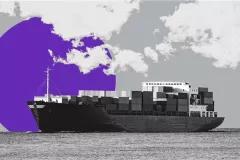This week, EU Parliamentarians will have the opportunity to grill the Commissioner candidates on their ambitions and competences for the upcoming term. It is a crucial time to ensure that climate ranks up high on the EU’s external action agenda, especially in its international partnerships offer. The current agenda of the Commissioners-designate appears to lack clarity on how they will integrate the EU’s climate ambitions into their foreign policy priorities. The European Parliament plays a key oversight role ensuring that Commissioner nominees are scrutinised on their qualifications, values and vision. Asking the right questions helps hold the nominees accountable, understand their motivations and gauge their capacity to address pressing challenges. The hearings will be followed by a vote by the European Parliament to approve the College as a whole. Here are some of our burning questions to key Commissioners-designates.
The climate emergency, along with uncertainties about the EU’s future competitiveness in the global clean economy and challenges in securing supply chains, has led to a recalibration of the EU’s foreign and economic policy. As part of this new approach, the EU has increasingly put international partnerships in the centre of its climate diplomacy.
President von der Leyen gave Jozef Síkela the task of making Global Gateway a “trusted and quality brand” as the Commissioner-designate for International Partnerships. Though, President von der Leyen’s Mission Letter to him could have provided clearer directions on prioritising climate in the EU’s partnerships strategy, specifically on alignment with the objectives of the Paris Agreement, an ask that is not made specific in the Mission Letter. Given the EU’s aspiration to supporting partner countries on their path towards net zero and its position as the largest collective contributor to international climate finance, the lack of directions on climate objectives in this Mission Letter is troubling.
Based on the findings of our recent report, "EU Climate Partnerships - Fit for Purpose?", a number of pressing questions have arisen as we review the Mission Letters. Some of these questions must be addressed urgently during the hearings, including the prioritisation of climate in the EU's external agenda, clarification of the EU's partnership offerings to partner countries, and the need for deeper cooperation on climate issues. The hearings are crucial moment to get clarity on key priorities of the new Commission.
Climate action needs to be at the top of the agenda
To the Commissioner-designate for International Partnerships Jozef Síkela, it is essential to ask: how will he ensure ambitious climate action is ingrained in all EU partnerships? While the EU has developed Global Gateway as a geopolitical response to China’s Belt and Road Initiative and aims to take it “from start-up to scale-up” during the next term, it is critical that climate and clean energy remain a top priority for this investment programme and other partnerships. As this topic is not directly addressed in Síkela’s Mission Letter, Sikela should clarify how he plans to continue implementing EU climate diplomacy objectives from an international partnerships perspective during the hearing.
On the diplomatic side, the High Representative-designate, Kaja Kallas, is entrusted with shaping a new foreign economic policy notably by “investing in mutually beneficial partnerships around the world” through Global Gateway and other external financing instruments. So the question that should be asked is: How will Kallas ensure that these partnerships help decarbonise both the EU’s and partner countries’ economies?
Clear strategies to strengthen the EU’s partnership offer
Jozef Síkela is expected to “ensure that partnerships and Global Gateway investments are developed in synergy with new Clean Trade and Investment Partnerships”. These newly announced Clean Trade and Investment Partnerships could become a cornerstone of the EU’s partnerships offer if tied to the success of the EU’s green industrial strategy, the Clean Industrial Deal, which has political momentum.
This new addition raises the following question: what is the EU Commission’s offer in these new partnerships and how do they fit into the EU’s current partnership landscape? How do international partnerships relate to the Clean Industrial Plan led by the Executive Vice-President-designate for a Clean, Just and Competitive Transition, Teresa Ribera? Improving coherence and clarify in the EU’s offer in its partnerships is essential for effective implementation and to attract partner countries, a clear answer is needed at the hearing. Thus, defining clear strategic directions for international partnerships is key to presenting a clear picture of how the EU can support decarbonisation efforts and contribute to the growth partner countries’ clean economy.
The new Clean Trade and Investment Partnerships will be developed under the leadership of the Commissioner for Trade and Economic Security, the current candidate being Maroš Šefčovič. He is missioned to collaborate with the Commissioner for International Partnerships, and the Commissioner for Climate, Net Zero and Clean Growth on these. This raises the following questions: how will the Commissioners work together on new partnerships? Will they collaborate with other relevant policy leaders, such as the Commissioner for Energy and Housing, or the High Representative for Foreign Affairs and Security Policy? Without a clarification on the EU’s partnerships governance, there is a risk that resources within the Commission will be inefficiently allocated and a lack of communication harms the effectiveness of partnerships as well as relations with partner countries.
Regarding relations with partner countries, High Representative-designate Kallas will work to ensure consistency between internal and external EU policies, particularly on climate and energy, while ensuring that the EU addresses the impacts of its legislations on partner countries. The question for her is: What will be her overarching strategy to enhance the outreach and communication of the EU’s action to partner countries?
Team Europe approach to improve cooperation
The Team Europe approach has the potential of enhancing cooperation between Member States and the Commission. The question for Commissioner-designate Jozef Síkela is: how will he build on the Team Europe approach when developing climate partnerships to ensure strategic alignment between Member States and EU institutions? What will be the role of Team Europe Initiatives in that approach?
Mainstreaming climate ambition into the EU’s partnerships framework is crucial not only for achieving the objectives that the EU committed to in the Paris Agreement but also for fulfilling President von der Leyen's primary goal for the upcoming term: ensuring Europe’s sustainable prosperity and competitiveness. That said, glossing over climate goals in international partnerships is not equivalent to incorporating them effectively into European foreign policy. Members of the European Parliament need to consider this to ensure that the next College of Commissioners delivers on the climate and development ambitions that the EU has set for itself.








